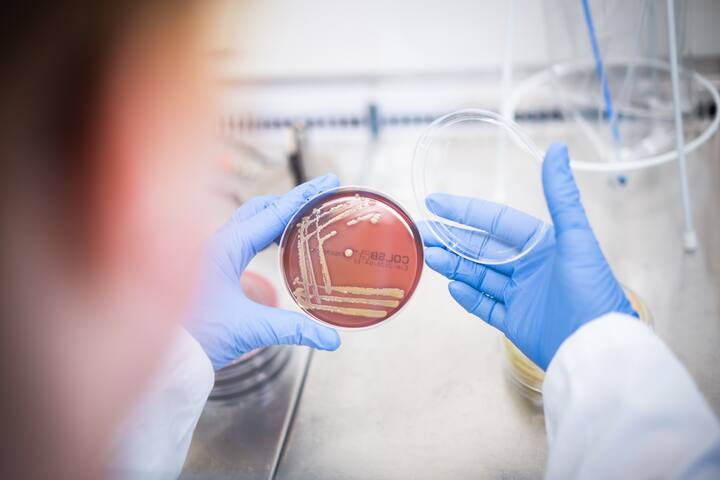
How to prevent a Listeria outbreak
How to prevent a Listeria outbreak
Eating food contaminated with the bacterium Listeria monocytogenes can lead to food poisoning with serious consequences. If you work with food, you want to do everything you can to prevent contamination. How do you do this? Aldo Evers, our Senior Technical Specialist, explains. We asked Aldo four questions about Listeria control.
Why do you need to be well informed about Listeria?
In 2024, the Belgian FAVV reported 38 recalls related to Listeria, while the Dutch NVWA reported one Listeria-related recall.
Aldo explains: ‘This means that products were on the shelves several times that could have made consumers (seriously) ill within the shelf life. That alone should be reason enough to make Listeria control a high priority within your food company.’
In addition to being a public health risk, Listeria has also become a business risk. Aldo adds: "Think of the high costs resulting from recalls, but also the liability in the event of illness or death of consumers as a result of eating contaminated food. It is therefore essential that everyone within the company understands where Listeria comes from. You also need to understand the relevant legislation and regulations and how the Dutch Food and Consumer Product Safety Authority (NVWA) interprets them. And how to use modelling and challenge testing to make predictions about Listeria monocytogenes and the risks to your business."
For which companies is Listeria control important?
"Listeria control is important for any company that works with food. However, extra attention to Listeria is necessary in companies that produce or trade ready-to-eat products and/or products that fall under categories 1.1, 1.2 or 1.3 of Regulation (EC) No. 2073/2005. Please note that this regulation was amended on 1 January 2025 and that the limit values are now being monitored more strictly," explains Aldo. The Regulation lists the following products under the aforementioned paragraphs:
Ready-to-use infant formula and ready-to-use food for medical use
Ready-to-use food that may serve as a growth medium for L. monocytogenes
Ready-to-use food that cannot serve as a growth medium for L. monocytogenes
Discover the 9 control measures for Listeria monocytogenes
In the food sector, controlling Listeria monocytogenes in ready-to-eat foods remains an important issue. In addition to HACCP analysis and the necessary hygiene measures to control (re)contamination, the focus is on studies into potential contamination and the possibility of growth under worst-case conditions. Discover the control measures you can take in nine steps and read our white paper on Listeria monocytogenes.

What knowledge is necessary for Listeria control?
To prevent contamination and growth of Listeria monocytogenes within your company, you need to be well informed and know the right steps to take. Aldo explains: "You need to be familiar with existing legislation and regulations and know how to read and interpret them. It is also important that you know how to conduct a Listeria study and that you understand the role of models and challenge tests, the use of data, various analyses and food sampling. Modern DNA techniques can also be used to trace the possible source of Listeria. And once you are aware of all this, it is also good to know the NVWA's position on Listeria monocytogenes." Listeria control within your company therefore requires a great deal of knowledge and experience. Aldo adds: ‘Because we know how badly things can go wrong and how serious the consequences can be, we believe it is important to provide those responsible in the food sector with the right knowledge and practical experience. We achieve this during the two-day Listeria Course at Wageningen University & Research, in collaboration with Normec Foodcare.’
How do you know what actions are necessary within your company?
"Every company is different and every situation requires a different approach to control. By learning about various practical examples and solutions and actually getting to work with your own business processes, you will gain a better understanding of the actions required within your company. During the course, speakers from the food industry share their practical experiences. This provides insight into how various Listeria issues have been dealt with within the company. The knowledge gained is then put into practice during a practical workshop. Afterwards, you will be able to determine for yourself which products and processes within your company are risky and how to draw up and implement a control plan for them," concludes Aldo.